International and domestic cooperation
We will strengthen Southeast European Studies by soliciting ‘local knowledge’, bringing leading voices from the region to Regensburg to give lectures and teach, and supporting early career scholars from the region to develop new and innovative research. The Visiting Professorship Programme, International Visiting Fellowships for early career scholars, and pre-doctoral scholarships are but a few activities in this field.
A key principle is to do research about the region together with the region. We want to counter existing asymmetries in the production of knowledge, entering into dialogue with colleagues from the region, creating equitable channels of communication and exchange from which we can mutually benefit. Setting the research agenda together with our partners, we propose to concentrate on issues that have been of continuous importance to citizens in the region: economic survival, public health, migration, environmental problems, the lack of trust in public institutions, collective identities, memory and conflict, globalisation and outside interference, to name just a few.
We open up new research horizons by exploring ‘Europe’ from the fringe, bringing ‘other’ bodies of knowledge to light, which show a high degree of cultural intimacy with vernacular sites and contexts. Knowledge of the languages and acquisition of advanced language skills is a precondition for conducting good research. In addition, interdisciplinary approaches are essential, with social anthropology focusing on everyday life, history looking at long-term developments, and linguistics addressing the shifts in symbolic and semantic systems. In making vernacular and ‘decentred’ voices heard, Southeast European Studies offers ample opportunities to explore larger issues linked to processes of globalisation, causing ‘frictions’ in specific locales.
Our measures are:
- Visiting Professorships.
- International Visiting Fellowships for early career scholars.
- Seed funding for postdocs to explore new and innovative ideas for research. The funds can be used flexibly to cover, for example, archival research and fieldwork, travel, research assistance, workshops, and the like.
- Pre-doctoral scholarships, to prepare an application for PhD funding.
- Workshops, e.g., “How to prepare an excellent doctoral project”.
- Mentoring junior scholars, preparing a publication for the IOS journal Comparative Southeast European Studies (COMPSEES).
It will be a measure of our success when we manage to support burgeoning research projects to be conducted in the region by scholars residing there, helping to reduce the academic brain drain from the region and contributing to employment possibilities in the respective countries. We welcome joint research funding applications with lead applicants coming from the region.
Visiting scholars

Visiting Professor Vjollca Krasniqi
April – July 2025
Vjollca Krasniqi is Associate Professor of Sociology and Gender at the Faculty of Philosophy, University of Prishtina, Kosovo. Her research explores gender, nation, transitional justice, memory politics, urban studies, social history, ethnography, and oral history, with a focus on gender dynamics in post-socialist and post-war Kosovo. She has published extensively on these topics, contributing numerous book chapters and articles in peer-reviewed journals. Her recent publications include: “Between transformation and marginality: Urban life and socially engaged art at the fringe of Prishtina” (co-author with Blerta Hoçia, 2025); “Gender and Transitional Justice: Recognition and Reparations of Wartime Sexual Violence in Kosovo” (2024); “The role of community-university engagement in strengthening local community capacity in Southeastern Europe” (co-author with Carmen Luca Sugawara et al., 2023); and “Skirts and Words: The Art of Acknowledgment, War Time Rape and Albanian Nationhood in Kosovo” (co-author with Ivor Sokolić and Denisa Kostovicova, 2020).
Vjollca Krasniqi teaches two courses at the University of Regensburg during the Summer Semester of 2025: “Gender and (Slow) Memory: Feminist and Intersectional Approaches” and “Women’s Movements: Comparative Perspective”.
Contact: vjollca.krasniqi@ur.de
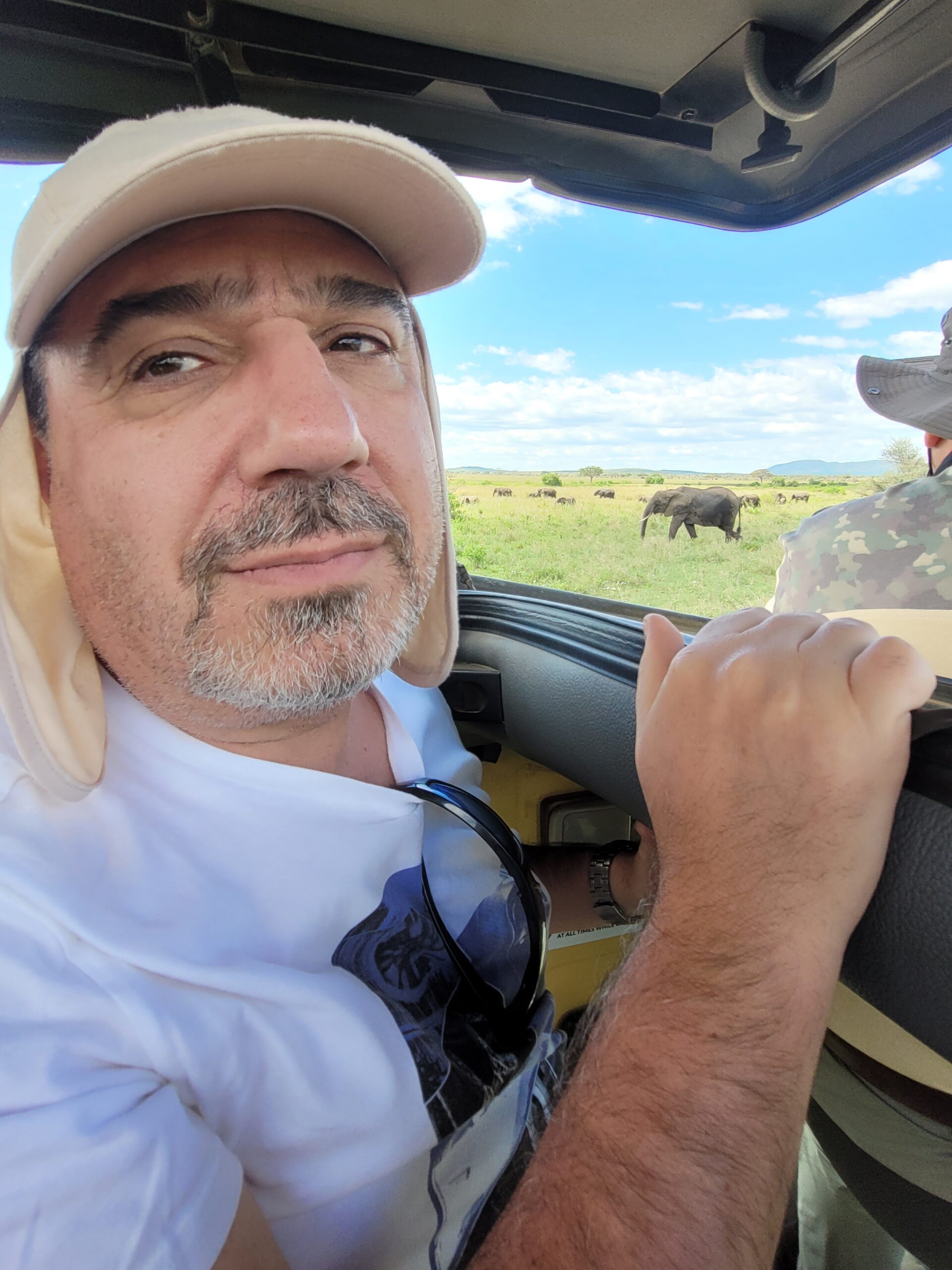
Visiting Professor Stefan Dorondel
October 2023 – February 2024
Stefan Dorondel is a Romanian anthropologist/environmental historian with a Ph.D. in History and Ethnology from the Lucian Blaga University Sibiu, Romania and a Ph.D. in Rural Studies from Humboldt University Berlin. He works for Francisc I. Rainer Institute of Anthropology and for the Institute for Southeast European Studies, both Romanian Academy of Sciences. He was affiliated with Yale University (Visiting Scholar), University of Cambridge (Visiting Fellow), Rachel Carson Center (Ludwig Maximilian University Munich) (International Fellow), Max Planck Institute for Social Anthropology Halle (Postdoctoral Fellow) and The New Europe College Institute for Advanced Studies Bucharest (Fellow). Dorondel is generally interested in environmental humanities particularly in wetlands, river history, fishing communities, forest, forestry and forest communities and the anthropology of climate change in Southeast Europe (particularly in Romania and Bulgaria). Dorondel is equally interested in STS (how scientific and technological knowledge travel) and local ecological knowledge. He published in journals such as Development and Change, Environment and History, The Canadian Journal of Development Studies and Critique of Anthropology. He is the author of Disrupted Landscapes. State, Peasants and the Politics of Land in Postsocialist Romania (Berghahn, Oxford & New York, 2016), co-author of When Things Become Property. Land Reform, Authority and Value in Postsocialist Europe and Asia (Berghahn Books, 2017) and co-editor of A New Ecological Order. Development and the Transformation of Nature in Eastern Europe (Pittsburgh university Press 2021). He is the PI of the 3-year Romanian National Science Foundation funded research project State, Communities and Nature of the Lower Danube Islands: An Environmental History (1830-2020) (https://danislandsproject.wordpress.com/press/).
Stefan Dorondel teaches two courses at our university: “The History and Anthropology of Environment” and “The History and Anthropology of Infrastructure”.
Contact: stefan.dorondel@ur.de
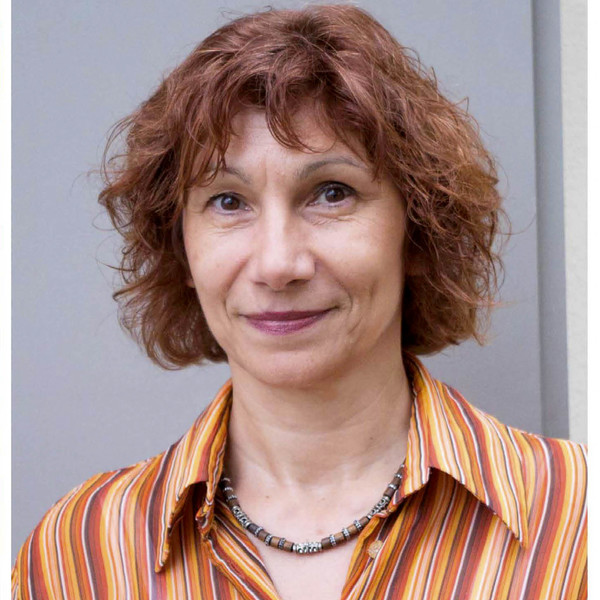
Visiting Professor Daniela Koleva
April – July 2023
Daniela Koleva is professor of oral history and memory studies at the Department for History and Theory of Culture, Sofia University. Her research interests are in the fields of oral history and anthropology of socialism and post-socialism, biographical and cultural memory, politics of memory and heritage, ageing studies, social history of medicine. She has published a monograph on the ‘normal life course’ in communist Bulgaria and a number of book chapters and articles in peer-reviewed journals. Her interest in the everyday life and life course under communism has resulted in a series of edited volumes, one of them international: Negotiating Normality: Everyday Lives in Socialist Institutions (Routledge, 2017). She is co-editor of Ageing, Ritual and Social Change: Comparing the Secular and Religious in Eastern and Western Europe (Ashgate/Routledge, 2013). Her latest book is Memory Archipelago of the Communist Past: Public Narratives and Personal Recollections (Palgrave Macmillan 2022).
Daniela Koleva teaches two courses at our university: “Toppled Statues and Re-written Histories in Eastern Europe: An Introduction to Memory Studies” and “Oral History and Biographical Methods: What to do with them and how”.
Contact: daniela.koleva@ur.de

Visiting fellow Dr Kristóf Nagy
July 2025
Kristóf Nagy is a historical anthropologist and sociologist with a background in art history, specializing in the cultural politics and policies of contemporary far-right governments. With a dual background in art history (The Courtauld Institute of Art, London) and social sciences (Central European University, Budapest/Vienna), he is interested in studying culture wars and infrastructures.
He submitted his PhD dissertation at Central European University in 2024. This project enabled him to be designated the 2024 Early Career Plenary Speaker at the European Association of Social Anthropologists convention. Since then, he has been affiliated with the Central European Research Institute for Art History and Eötvös Loránd University. In previous years, he held visiting positions at the University of Amsterdam, the University of Vienna, and the Czech and Slovenian Academies of Sciences.
During the 2025/2026 academic year, he will serve as a Fung Global Fellow at Princeton University, working on his monographs on global culture wars in the era of deglobalization. His recent publications include From Fringe Interest to Hegemony: The Emergence of the Soros Network in Eastern Europe (2018); Left Turn – Right Turn: Artistic and Political Radicalism of Late Socialism in Hungary (2021); and Culture Wars as Property Struggles: The Hungarian Academy of Arts in Post-1989 Hungary (2023).
In addition to publishing extensively, he has shared his research through curatorial projects, such as the Left Turn, Right Turn exhibition at the Blinken Open Society Archives, which presented a comparative analysis of far-left and far-right radicalism among artists. As a member of the Working Group for Public Sociology “Helyzet,” he has worked with economists and social scientists to develop a collective, global understanding of Eastern Europe.
During his fellowship at seeFField, he will work on a project titled “The Institutions of Culture Wars: Towards a Comparative Research Agenda.”
Contact:

Visiting fellow Dr Bojan Baća
June 2025
Bojan Baća is a political and cultural sociologist from Montenegro. He holds a PhD in Sociology from York University and is currently a research fellow at the Institute for Advanced Studies, University of Montenegro. Previously, he was a Marie Skłodowska-Curie Fellow at the Department of Sociology and Work Science, University of Gothenburg, and a Re:constitution Fellow at the Max Weber Institute of Sociology, Heidelberg University. In recognition of his contributions to the study of civil society, social movements, and contentious politics in postsocialist Central and Eastern Europe, he received the 2022 Routledge Area Studies Interdisciplinarity Award.
His research has appeared in leading scholarly journals, including Sociology, Antipode, International Political Sociology, Theory, Culture & Society, Political Geography, Acta Sociologica, and Europe-Asia Studies, among others. As a SeeFField Visiting Fellow, Bojan will examine the (re)production of conspiracist ideology within online communities in the countries of the former Yugoslavia.
Contact: bojan.baca@gmail.com

Predoc Fellow Bleona Kurteshi
April – September 2025
Bleona Kurteshi is a sociologist and researcher whose work focuses on gender, memory politics, and the representation of wartime experiences in Kosovo. She completed her BA and MA studies at the University of Prishtina, Department of Sociology, and also holds a postgraduate diploma from the University of Iceland.As a pre-doctoral fellow in the SEEFField program, her research explores “The Politics of Memory in Kosovo: Public and Private War Narratives and its Representation.”
Her work examines how collective memory and trauma shape everyday life and public discourse in the post-conflict society of Kosovo.
In addition to her academic pursuits, Bleona is actively involved in public life through various research projects and community initiatives that address collective memory, gender justice, and post-conflict reconciliation in Kosovo. Since September 2024, she has also served as a teaching assistant at the Department of Sociology at the University of Prishtina.
Contact: bleonaakurteshi@gmail.com
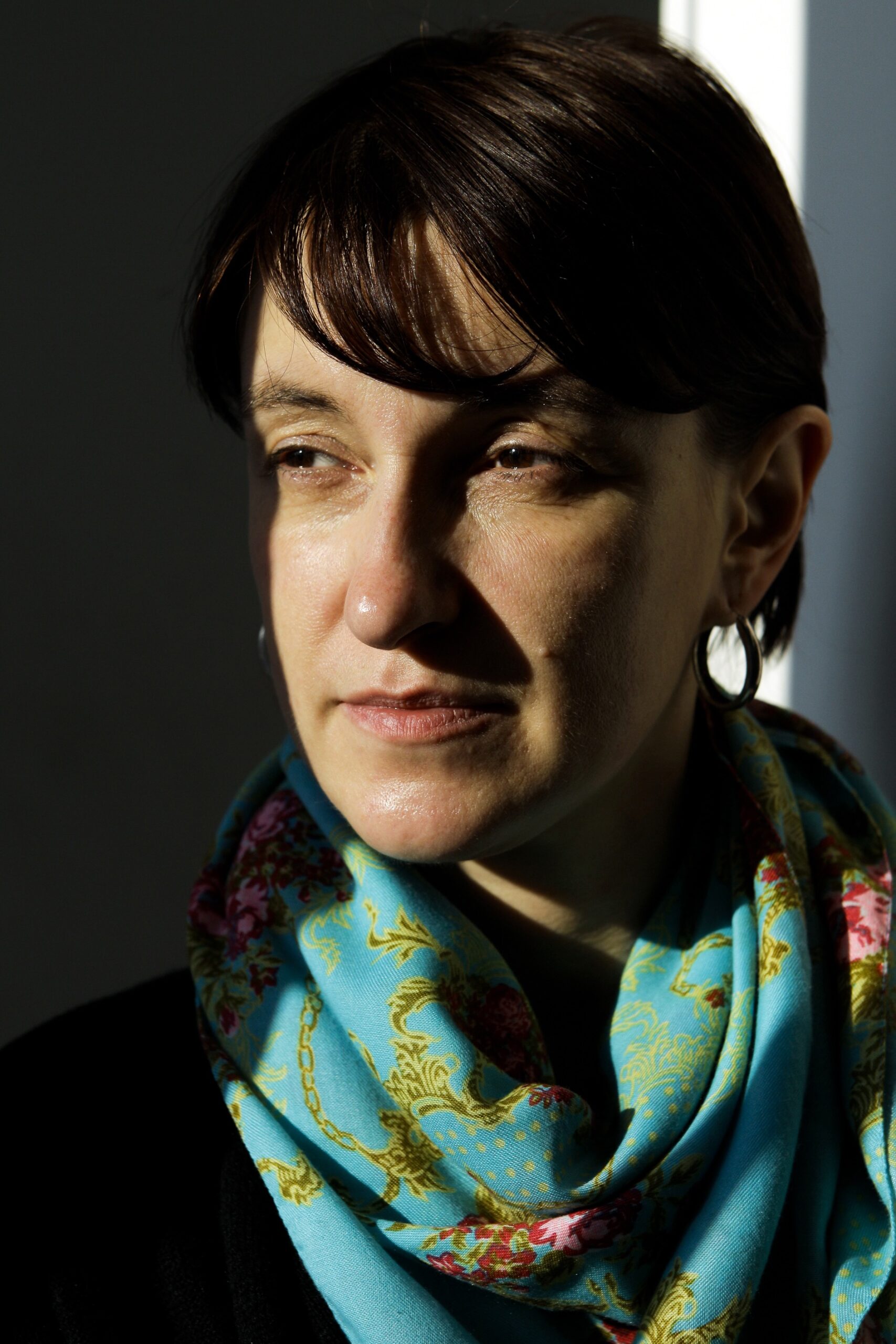
Visiting fellow Dr Nidžara Ahmetašević
October 2024
Nidžara Ahmetašević is an independent researcher, award-winning journalist and author of the book “The Media as a Tool of International Intervention in Bosnia and Herzegovina: House of Cards”, published by Routledge. Her fields of interest are democratisation and media development in a post-conflict society, hate speech, transitional justice, media and political propaganda, human rights and migrations. She was awarded the AHDA Columbia University Fellowship, Chevening Scholarship, Ron Brown Fellowship for Young Professionals, UNICEF Keizo Obuchi Award and Annenberg–Oxford Summer Media Policy Summer Institute Fellowship. Nidžara was shortlisted for the European Press Prize in 2022. The same year, she received the Fetisov Journalism Award 2022 for “Outstanding Contribution to Peace”. Her work has been featured in various media in the Balkans, as well as the New Yorker, Al Jazeera English online, The Observer, the Independent on Sunday, the International Justice Tribune, Der Spiegel, The Guardian and Rolling Stone, among others. She has PhD from the University of Graz, Austria.
During her fellowship at seeFField, Nidžara will work on a project entitled “Feminist activism in the post-war period in Yugoslav succeeding countries”.
Contact: nidzara.ah@gmail.com
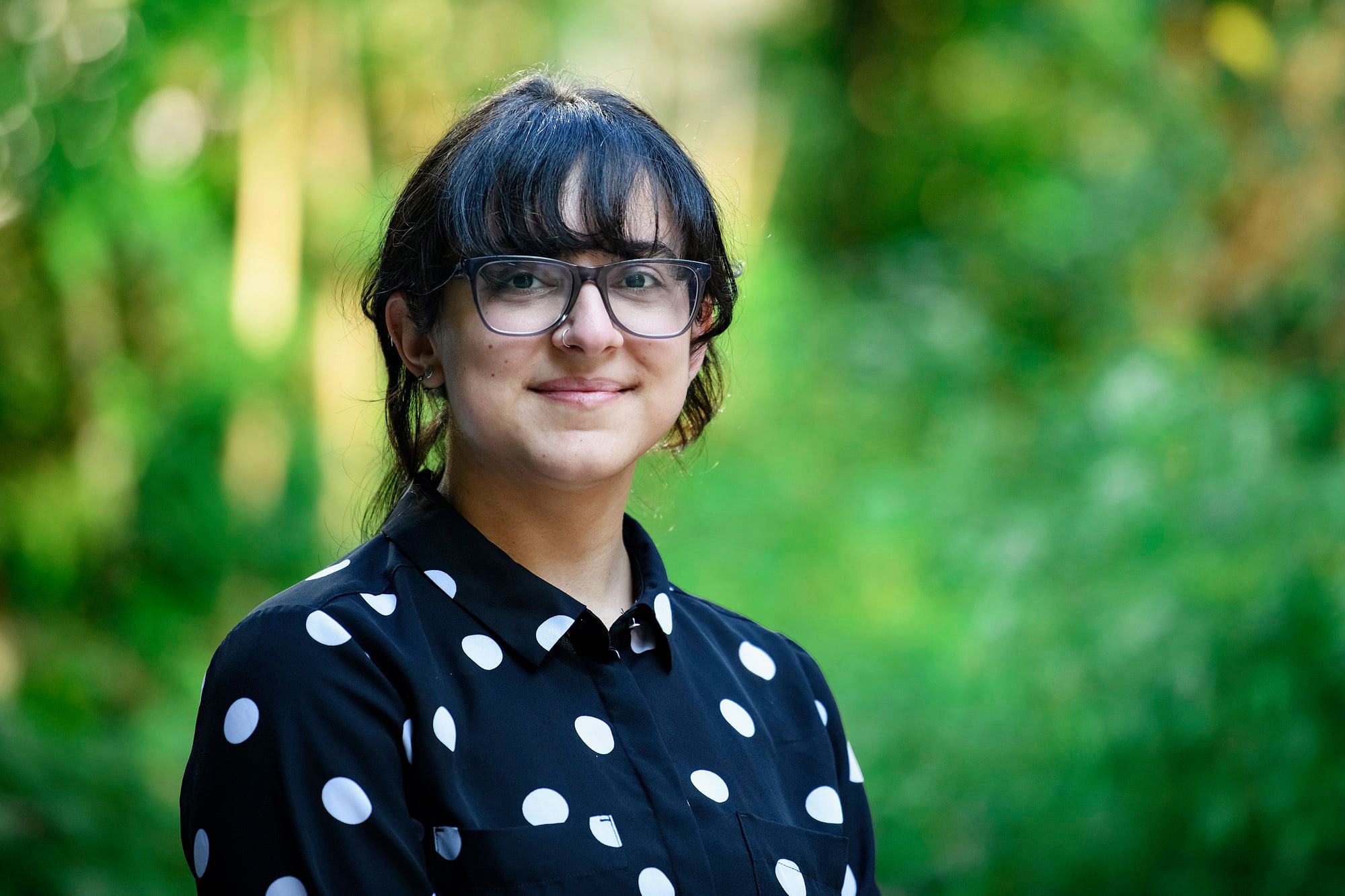
Predoc Fellow Nana Saralishvili
April – September 2024
Nana obtained her MA in Modern Georgian History from Ilia State University (Tbilisi, Georgia) in 2022, and a further MA in Comparative History from the Central European University (Vienna, Austria) in 2023. Her BA was in Liberal Arts (Ilia State University), during which she spent two semesters at Uppsala University, Sweden, through the Erasmus+ exchange programme. Her previous academic research has focused on ecumenical relations in the Soviet Union and abroad during the Cold War era and the 1990s. Nana has been engaged with various interreligious and research projects in Georgia and is currently working on the Bible Translation Project with the Georgian Bible Society.
As a predoc fellow in seeFField, she will work on a topic “Bible Translation in 19th-20th Centuries in the context of ideological and political struggles – comparative study of Georgia and Balkan States” under the supervision of Prof. Dr Klaus Buchenau.
Contact: nana.saralishvili@ur.de
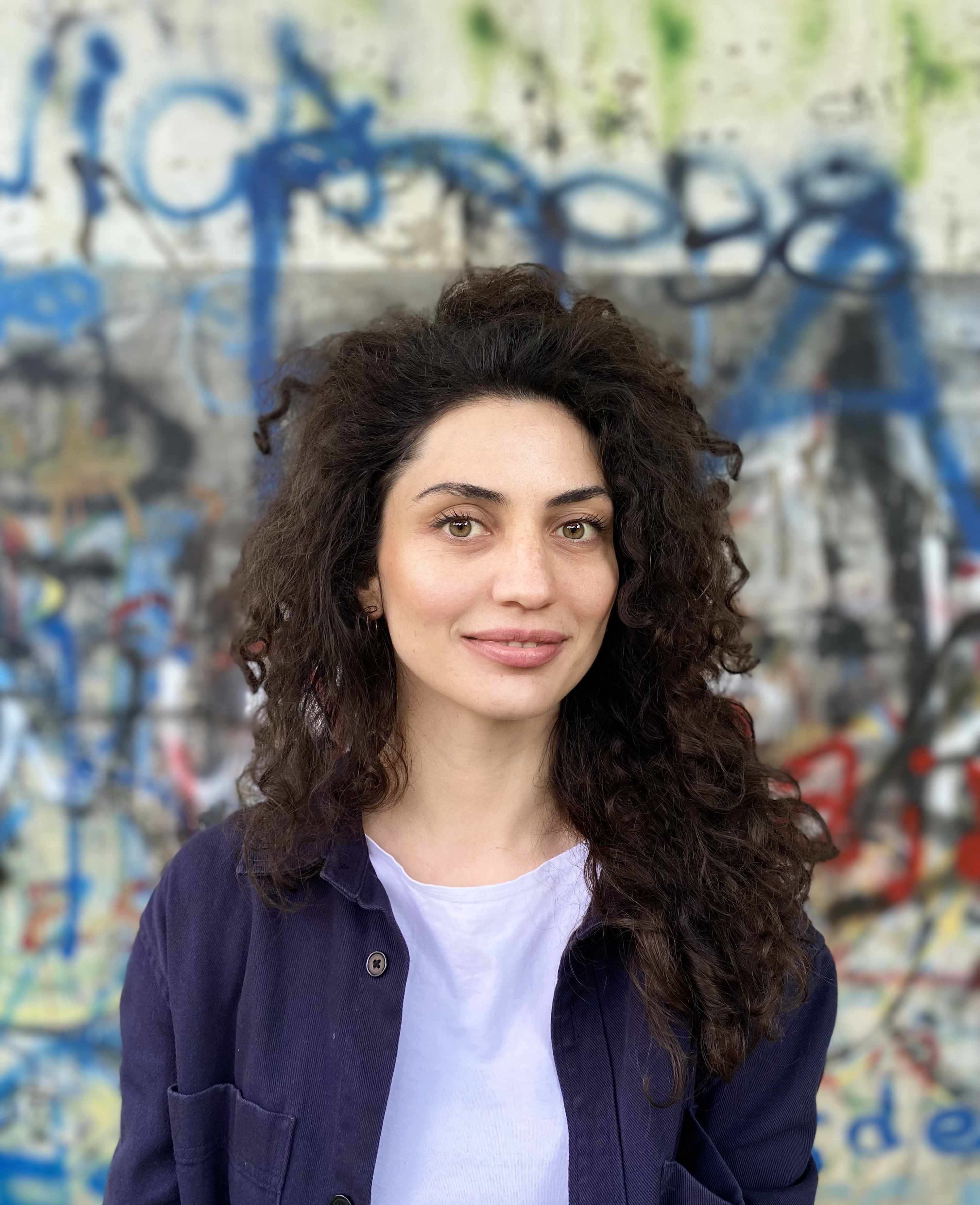
Visiting fellow Dr Rozafa Berisha
June 2024
Rozafa is a social anthropologist with an interest in the gendered, social, and affective dimensions of the state. Having previously studied at KU Leuven, she completed her PhD at the University of Manchester in 2022. The dissertation explored ethnographically how gendered futures are re-imagined and negotiated in the wake of fading societal hopes, hinged in Kosovo’s state-building project. More broadly, Rozafa´s research interests lie between anthropologies of the state and geopolitics; youth and gender; hope and affect. Her publications from a previous research project have addressed themes of social memory and acts of remembrance, and more recently gendered politics of state-building. Since 2023, she has been lecturing at the University of Prishtina and American University of Kosovo. Prior to her fellwoship at seeFField, she was a visiting scholar at Bournemouth University (UK) and afterwards she will join the Anthropology Department at the University of Illinois Urbana-Champaign (US).
During her fellowship at seeFField, Rozafa will work on a project titled “Crafting Futures in the Aftermath of Hope: Gender, State, and Affect in Kosovo”.
Contact: rozafa.berisha@uni-pr.edu

Visiting fellow Dr Dragoș Sdrobiș
May 2024
Dragoș Sdrobiș holds a PhD in history (2014) from the “George Barițiu” Institute of History Cluj-Napoca. His research topics include the history of higher education and the social history of intellectual professions in Romania during the 20th century. He is the author of the volume “Limitele meritocrației într-o societate agrară” (Iași: Polirom, 2015; Berlin: Frank&Timme, 2023 for the German version). In the 2017-2018 academic year, he was a postdoctoral fellow at New Europe College. Institute of Advanced Studies, Bucharest. Since February 2023, Dragoș is a lecturer at the University of Art and Design Cluj-Napoca.
During his fellowship at seeFField, Dragoș will work on a project titled “Pedagogy of Precision: Competing Patterns for Technical Higher Education in Romania 1860-1948″.
Contact: dragosconstantinsdrobis@gmail.com
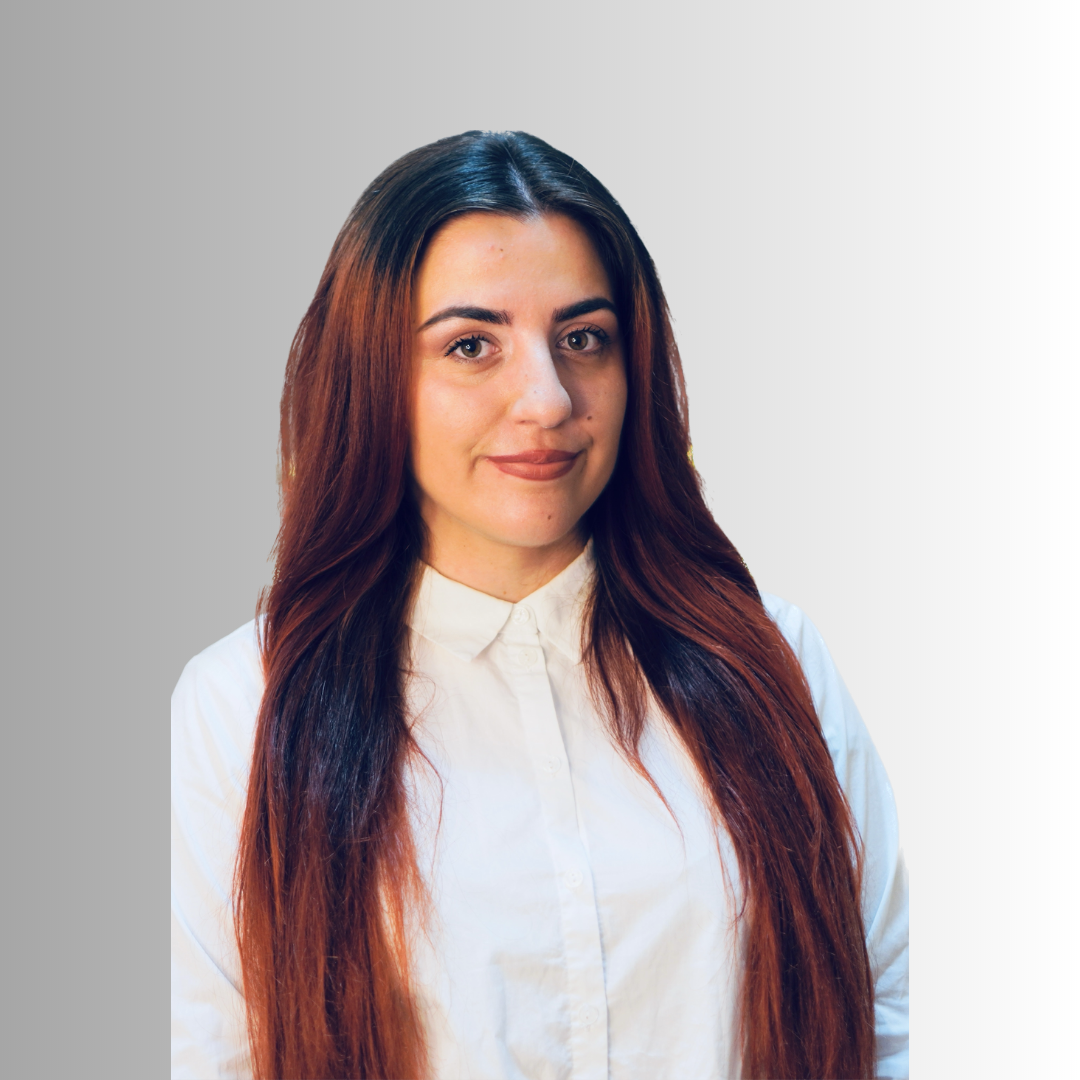
Predoc Fellow Silvana Farruku
April – September 2023
Silvana Farruku is currently a predoctoral fellow at SeeFField, where she is writing her project proposal with the topic “ The Identity Contradiction of Being Muslim and Albanian – A Multi-layered Critical Discourse Analysis of Hate Speech and Islamophobia in Albania and Kosovo: A case study of two Muslim majority countries in Southeast Europe”. Silvana holds a Master’s Degree in Modern Linguistics and a Bachelor Degree in Language and Literature from University of Tirana. During her master’s studies she conducted two Erasmus + semesters at Humboldt University of Berlin.
Furthermore, she has been engaged in various training programs on youth activism in Albania and on the implementation of relief and social projects.
Contact: silvana.farruku@ur.de
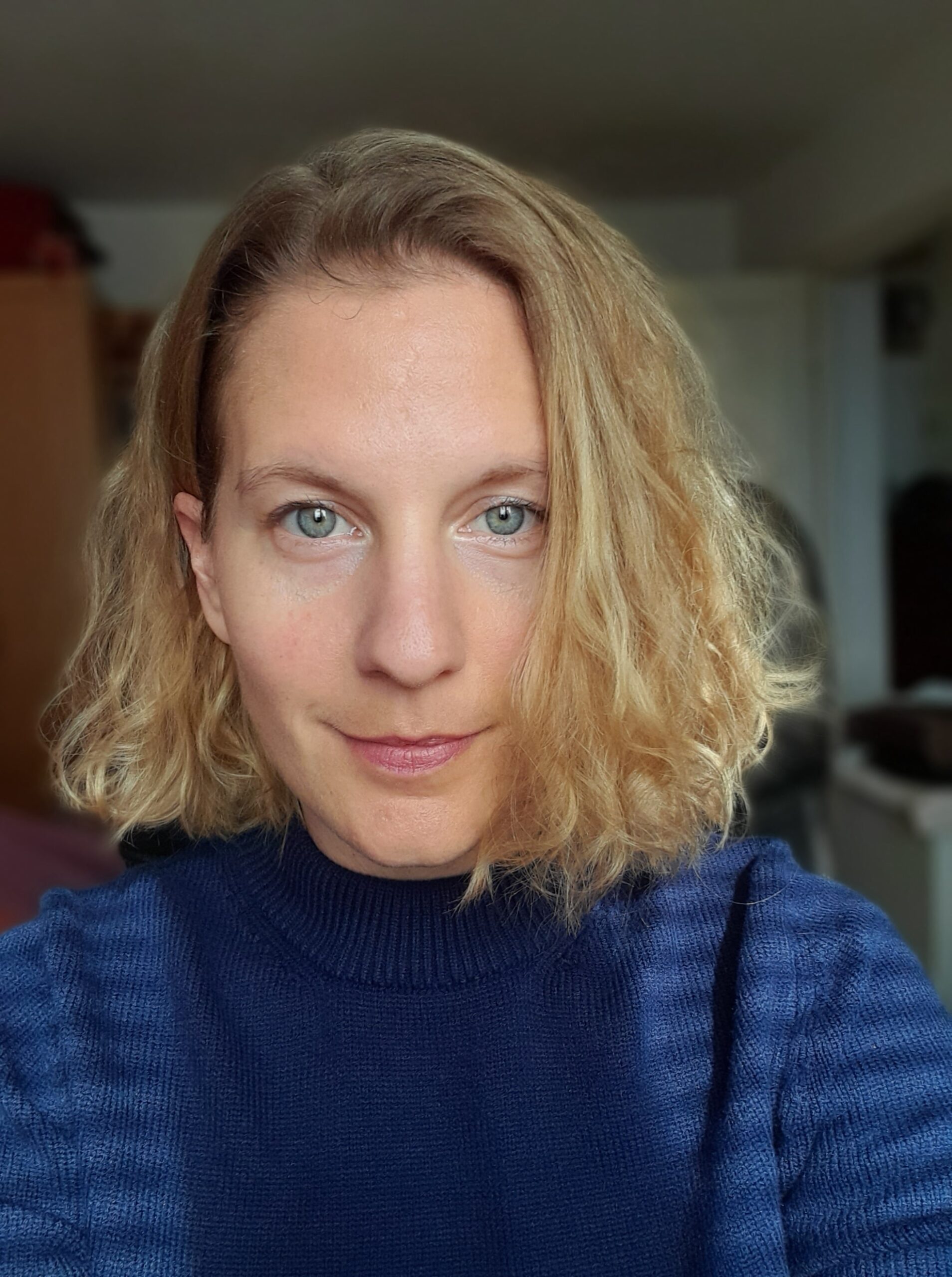
Visiting fellow Katarina Damčević
May 2023
Katarina Damčević is a PhD candidate and a junior researcher at the Department of Semiotics at the University of Tartu, Estonia. Her research focuses on hate speech and contested symbols in post-conflict societies. The title of her doctoral thesis is “Semiotics of Hate Speech and Contested Symbols: The ‘Za dom spremni’ Ustaša Salute in Contemporary Croatia”, where she analyses how the salute has been used by different mnemonic actors to reinforce a one-sided version of the past and Croatia’s post-war national identity. Katarina was a research fellow in the US-based Dangerous Speech Project and the Humanitarian Law Center in Belgrade, Serbia. She also works in the Center for Academic Writing and Communication at the University of Tartu. Her teaching and research interests revolve around writing groups and peer feedback, writing retreat facilitation, and writing and emotional well-being.
During her fellowship at seeFField Katarina will work on a project titled “Semiotics of Hate Speech: “Ready for the Homeland” in Contemporary Croatia”.
Contact: katarina.damcevic@ut.ee
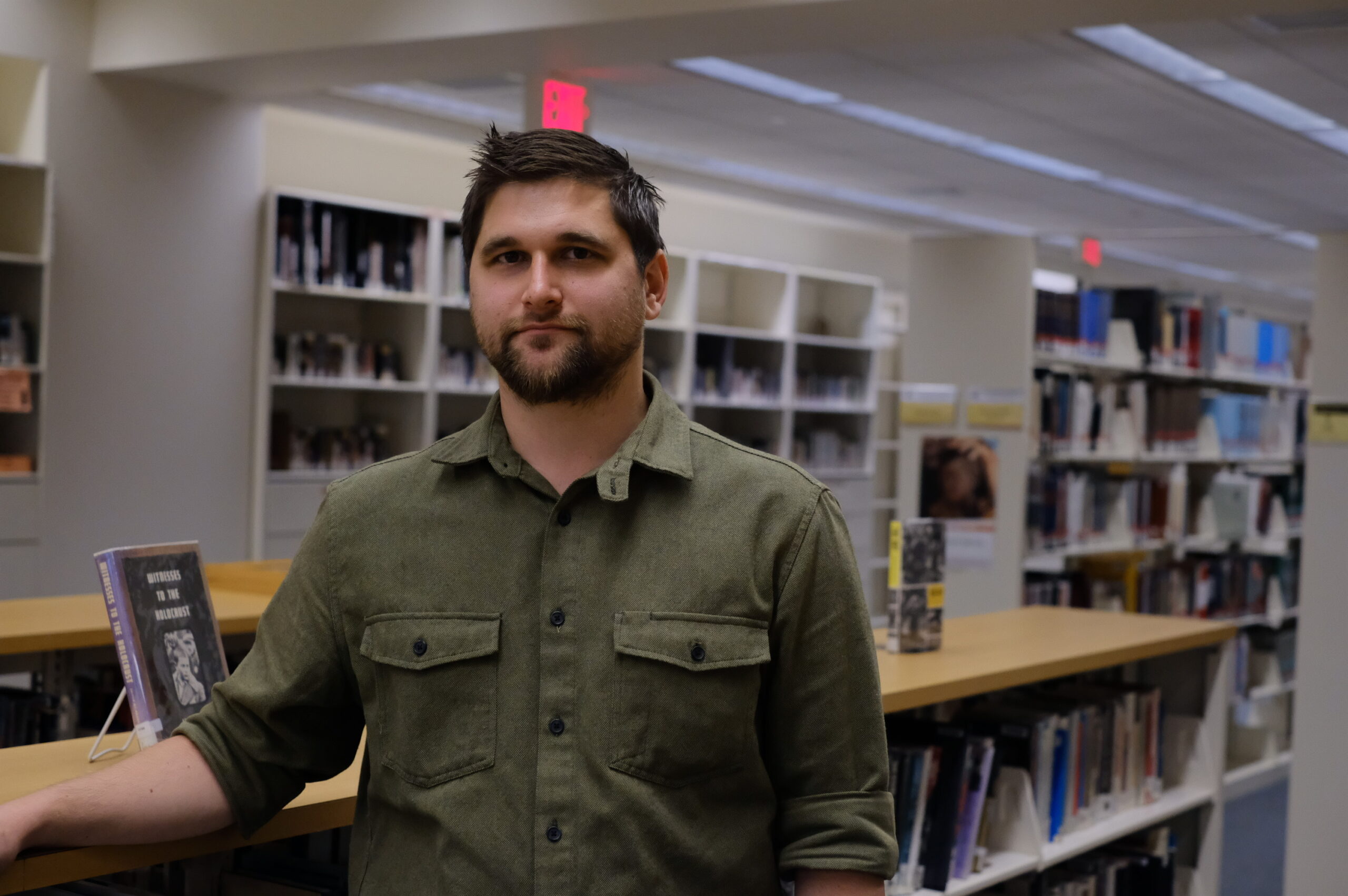
Visiting fellow Dr Hikmet Karčić
May 2023
Hikmet Karčić is a Research Associate at the Institute for the Research of Crimes against Humanity and International Law – University of Sarajevo. Bosnia and Herzegovina. and author of “Torture, Humiliate, Kill: Inside the Bosnian Serb Camp System” (University of Michigan Press, 2022). He was the 2017 Auschwitz Institute-Keene State College Global Fellow who has written extensively on genocide denial and atrocity prevention. A sought after commentator on international media outlets, his articles covering far-right extremism and mass atrocities have appeared in Haaretz, Newsweek and Foreign Policy.
During his fellowship at seeFField Hikmet will work on a project titled “The Drina River Valley: Troubled Pasts and Contested Parallel Histories”.
Contact: karcichikmet@gmail.com
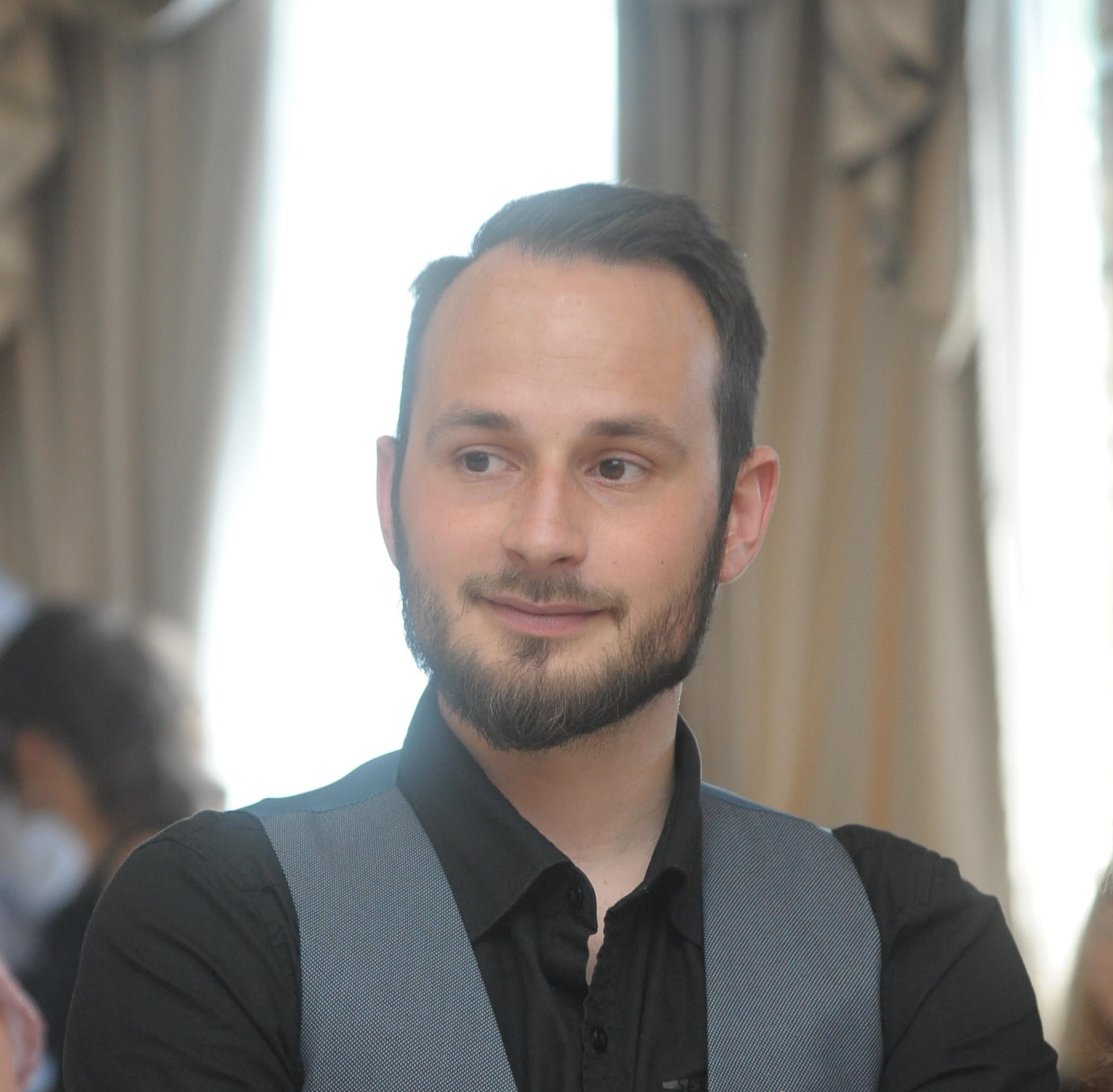
Seed funding postdoctoral scholar Dr Radosav Tucović
January 2025 – December 2025
Radosav Tucović is a research associate at the Institute of Contemporary History in Belgrade. Tucović completed all three levels of studies at the University of Belgrade, while he carried out research mobility during doctoral studies at the Humboldt University in Berlin. His research interests lie in the fields of World War Two, occupation systems, police organizations and police practice. His dissertation analyses the actions of German and Serbian police chiefs in occupied Serbia during the Second World War. For his doctoral thesis, he received the “Andrej Mitrović” award from the “Michael Žikić” Foundation in Bonn. He is currently participating in two multi-year international projects, and he has presented the research at conferences in several European countries. Tucović is also a participant in an international organization for the development of research on occupational systems around the world.
His seeFField postdoctoral seed funding grant makes it possible for him to continue his research on the role of the Gestapo in occupied Serbia (1941-1944) as a key instrument of Nazi repression, operating alongside other military, administrative, and intelligence institutions, drawing on extensive archival sources in Serbia, and applying interdisciplinary approaches from anthropology, sociology, and law.

Seed funding – postdoctoral scholar Dr Stamatia Fotiadou
January 2025 – December 2025
Stamatia Fotiadou holds a Ph.D. in Balkan Studies from Democritus University of Thrace, where her dissertation examined the role of Greek and Bulgarian newspapers in shaping nationalist tensions during the Balkan Crisis (1875–1878).
Dr. Fotiadou has conducted two postdoctoral research projects in 2023. The first, at the Institute of Balkan Studies in Sofia, focused on “national catastrophes” in Bulgaria (1913–1919), while the second explored Greek and Bulgarian perceptions of “national catastrophes” (1919–1922) in a comparative context at the Center for Advanced Studies in Sofia.
Currently, Dr. Fotiadou is working as a postdoctoral researcher at the Institute of Balkan Studies with Center for Thracology at the Bulgarian Academy of Sciences. She is engaged in the project Digital Historical Paths in Bulgaria and Greece (DIGIPAB-G), which aims to enhance cultural convergence and promote sustainable good neighborly relations between the two nations. With the aim to create a multilingual digital platform, this initiative combines digital humanities with cultural history to explore the historical and cultural interactions between Bulgaria and Greece. The project seeks to eliminate stereotypes, foster regional cooperation, and support inclusive cultural policies while advancing education and tourism.
Her research interests include nationalism, national narratives, population movements between Greece and Bulgaria during the 20th century, urban topography, and perceptions of Panslavism in Greece. She has participated in numerous international workshops and conferences and has publications in Greek, English, and Bulgarian.
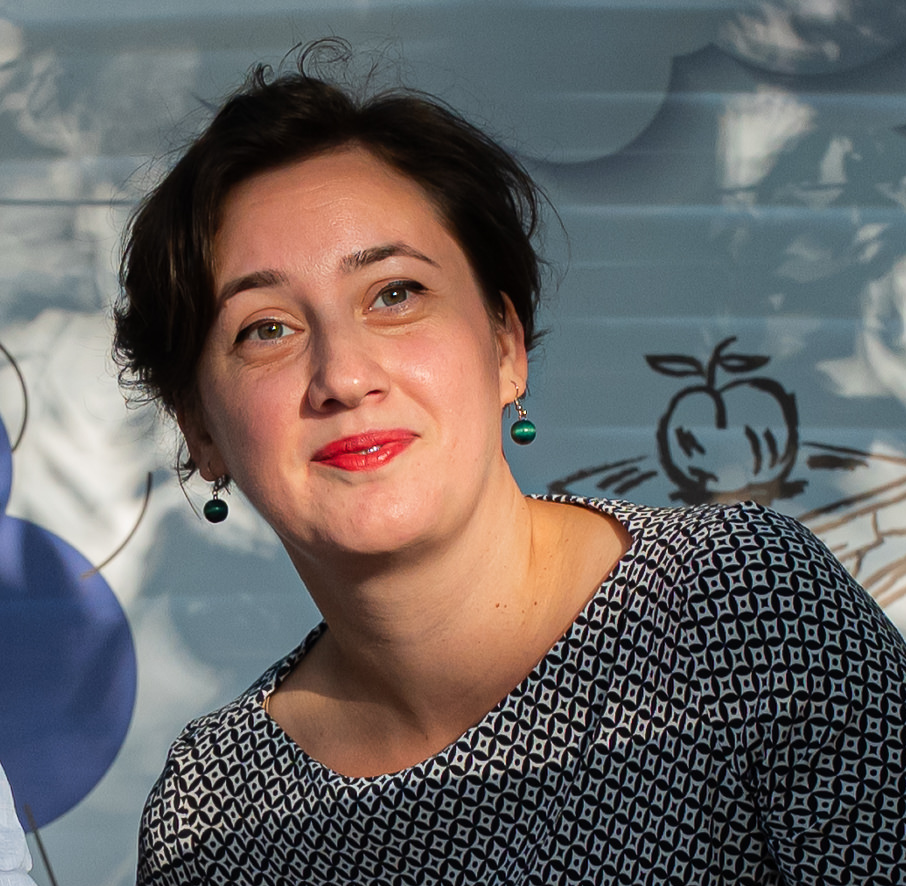
Seed funding – postdoctoral scholar Dr Oana Sorescu-Iudean
December 2023 – November 2024
Oana Sorescu-Iudean is a researcher at the Centre for Population Studies, at the Babeș-Bolyai University of Cluj-Napoca. She holds a PhD in History from the University of Regensburg (2021), where she was a member of the Graduate School for East and Southeast European Studies. She is currently serving as a representative of Babeș-Bolyai University in the EUTOPIA Young Leaders’ Academy and is a member of two COST Actions. In 2023, she held a postdoctoral grant from the STAR-BBU Institute of the Babeș-Bolyai University, which provided a data-driven approach to studying the plague in 18th century Transylvania. She has been involved in several projects integrating digital humanities approaches with East-Central European historical sources. She has recently co-authored a study on Romanian women’s networks in civil society in 19th-20th century Transylvania, and co-edited a volume entitled Elites, Groups, and Networks in East-Central and South-East Europe in the Long 19th Century (Brill Schöningh, 2022). Her current research lies at the intersection of social, economic, and medical history of early modern and modern Transylvania, focusing on the development of urban health infrastructures, the shifts in housing quality, prices, and living conditions, and the evolution of epidemic diseases such as the plague.
Her seeFField postdoctoral seed funding grant makes it possible for her to lay down the groundwork of a larger research project focusing on “Housing and Living in 18th-19th century urban Transylvania”, which aims to provide a novel, integrated perspective to this topic using various digital instruments.

Seed funding postdoctoral scholars Dr Ljiljana Pantović & Dr Jelena Kupsjak
January 2024 – December 2024
Ljiljana Pantović is a researcher at the Institute for Philosophy and Social Theory in Belgrade. She earned her PhD in medical anthropology from the University of Pittsburgh in 2019. Her primary research interests revolve around maternal healthcare, market transformations of healthcare systems, and informality.
Jelena Kupsjak is a Postdoctoral Researcher at the Department of Ethnology and Anthropology at the University of Zadar, where she obtained her PhD in anthropology in 2020. Her doctoral dissertation explored the effects of economic transition and reforms on healthcare and welfare in Croatia, focusing on the emergence of new subjectivities related to mental health.
Ljiljana and Jelena have been collaborating since 2021 through Erasmus+ exchanges and projects aimed at promoting medical anthropology in Southeast Europe. They were awarded a Wenner-Gren grant, which enabled them to organize the conference “In the Frictions: Care, Health, and Wellbeing in the Balkans” at the University of Zadar in April 2023. This conference served as an initial step towards establishing collaborations with other anthropologists in the region. They are currently working on various collaborative projects focusing on care and healthcare in Southeast Europe and have recently co-authored an article titled “Crowdfunding for Medical Expenses: Concerns and Implications.”
Their seeFField postdoctoral seed funding grant allows them to lay the groundwork for a larger research project focusing on social medicine and collaboration in public health in Southeast Europe. The aim of this project is to provide a deeper understanding of the dynamics of healthcare systems, examining the status of social medicine and the challenges they face in the contemporary neoliberal context. This includes analyzing how reforms and economic changes have impacted public health systems, as well as addressing current challenges such as staffing shortages, financial constraints, and inequalities in access to healthcare.
From the blog
What is the editorial team thinking about this month?
Rückblickend haben wir wirklich allen Grund, stolz auf das zu sein, was wir in diesem Jahr erreicht haben. Das Jahr 2025 hat uns wertvolle Erfahrungen, neue Erkenntnisse und ein tieferes Verständnis dafür gebracht, wofür seeFField steht und warum unsere Arbeit wichtig ist.
read articleConfronting Femicide in Romania
So far this year, in Romania, 57 women have been killed as a result of intentional, gender-motivated violence. This blog argues that such cases are not isolated incidents but symptoms of deeper structural problems: institutional negligence, misogynistic and patriarchal societal norms, and a lack of effective preventive mechanisms and institutions.
read articleProteste sind weiblich? Ein Jahr studentischer Proteste in Serbien zwischen Novi Pazar und Novi Sad
Besonders interessant ist die bislang kaum untersuchte Frage der Genderrollen: Wie wirken sich Proteste in einem autoritären, patriarchalen System aus, wenn sie von einer Gruppe getragen werden, in der laut UNESCO 32 % mehr Frauen als Männer studieren?
read articleWhat is the editorial team thinking about this month?
Das Thema des Monats November ist das Leben ausländischer Frauen in Deutschland. Wir sprechen über unsere Herausforderungen und über die Chancen, die wir alle nutzen können.
read articleDiella. Die KI-Ministerin, die ihre künstlichen Blumen gießt?
Ist Diella ein revolutionärer Fortschritt für Albanien – oder nur eine PR-Show in einem Land, das mit tief verwurzelten Problemen kämpft?
read articleKI im Studium und Wissenschaftskommunikation: Fluch oder Segen? – Ein Erfahrungsbericht des Editorial Teams
In diesem Bericht sollen individuelle Perspektiven auf diese Entwicklung gesammelt werden, um Vor- und Nachteile der KI-Nutzung in verschiedenen Bereichen aufzuzeigen. Ziel ist es, die Erfahrungen im Studium, im beruflichen Kontext und im privaten Alltag zu erfassen und kritisch zu reflektieren.
read articleWhat is the editorial team thinking about this month?
Das Thema des Monats Oktober ist Künstliche Intelligenz und wie wir sie in unserer Arbeit und im Studium einsetzen. Doch bevor wir tiefer einsteigen, werfen wir zunächst einen Blick darauf, womit sich unser Team aktuell beschäftigt.
read articleThrakien in der Geopolitik
Im griechischen Teil Thrakiens sticht die geopolitische Relevanz der Region besonders ins Auge. Bereits kurz vor den Toren unserer ersten Station Alexandroupolis passierte unser Reisebus eine große Kaserne des griechischen Militärs. Die Gründe für die hohe Militärpräsenz in der Stadt und Umgebung ergeben sich einerseits aus der Grenznähe zur Türkei und andererseits aus dem für die NATO strategisch wichtigen Hafen.
read articleReclaiming public space: Feminist history (re) writing of Southeast Europe
Public space in Southeast Europe reflects deeply entrenched gendered and geopolitical hierarchies, where patriarchal and nationalist narratives dominate memory and shape urban landscapes. Women, queer communities, and minorities are largely excluded from public commemoration. However, feminist artists, activists, and grassroots movements are resisting this erasure through creative interventions such as performance, street art and activist cartography.
read article(Not) to sit in an ivory tower with a nice balcony: Highlights from the 2nd Southeast European Studies Forum (Prishtina, 19-22 March 2025)
From March 19 to 22, partners from our network met at the University of Prishtina to discuss some key issues affecting Area Studies: How can academia continue to fulfil its public mission by adapting to new media? How do we preserve linguistic diversity in the age of AI?
read articleKako je borba protiv korupcije postala borba protiv obrazovnog sistema ? — Hronologija pritisaka
At the end of 2024, tragedy shook Serbia - 16 people lost their lives due to the fall of a canopy at the newly renovated railway station in Novi Sad, once again drawing attention to the state's negligence for its own citizens and the consequences of galloping corruption. The grief quickly turned into one of the largest civil uprisings in Serbia's recent history.
read article2025 Southeast European Student Symposium- Third Edition
The Southeast European Studies (SEES) Student Symposium was initiated by students from the universities of Graz, Regensburg, and Jena. The main goal of the symposium is to provide an opportunity for networking among students and graduates who are interested in Southeast European Studies.
read articleMasakra e Tivarit: Kujtesa, Trauma dhe Trashëgimia e Pazgjidhur e Luftës së Dytë Botërore në Ballkan
Masakra e Tivarit ishte një ngjarje tragjike gjatë muajve të fundit të Luftës së Dytë Botërore, kur Partizanët Jugosllavë detyruan mijëra burra shqiptarë nga Kosova të marshonin drejt Tivarit (Bar, Mali i Zi), me pretekstin e rekrutimit ushtarak. Pasi mbërritën, shumë prej tyre u ekzekutuan në vrasje masive.
read articleSerbia on the move. Reflections on the student protests.
Two taxi drivers, two worlds—yet one powerful student movement calling out corruption across Serbia. Fed up with broken promises and a collapsed train station canopy, these young activists want transparency, justice, and better universities. Ready to discover how they’re uniting a divided society?
read article„Ich bin eine wirklich stolze bayerische Kroatin“ – Die Sprachbiographie der mehrsprachigen bayerischen Landwirtschaftsministerin Michaela Kaniber
Der Artikel untersucht die Sprachbiographie von Michaela Kaniber, der Bayerischen Staatsministerin für Ernährung, Landwirtschaft, Forsten und Tourismus. Die Studie basiert auf einem Interview, das im November 2023 geführt wurde.
read articleZwischen Küste, Gastfreundschaft und Aufbruch: Eine Exkursion ins Herz Albaniens
Wie sieht die Zukunft eines Landes aus, das jahrzehntelang isoliert war und nun zum aufstrebenden Geheimtipp für Reisende avanciert? Erleben Sie in diesem Beitrag, wie sich Albanien vom einst isolierten Land zu einem aufstrebenden Reiseziel wandelt.
read articleIstorija države kao istorija svih njenih naroda
Ko ima pravo da ispriča istoriju? Ako kolektivno sećanje predstavlja zajedničku, često institucionalizovanu prošlost, negovanu u okvirima određene društvene grupe, šta se, onda, događa sa prošlošću onih čiji glasovi nisu deo tog kolektivnog narativa, koji se sa njim ne poistovećuju i koji mu se – čak – protive?
read articleWie schimpft der Balkan? Ein wissenschaftlicher Blick ins Wörter-Schmutzwäschefach
Laut einigen Studien gehören etwa 80 Wörter, die Erwachsene täglich verwenden, zur Kategorie der Tabuwörter, darunter auch Schimpfwörter. Schimpfwörter sind nicht nur bloße sprachliche Äußerungen mit spezifischer Wirkung,sondern ein äußerst ergiebiges Forschungsthema, und zwar interdisziplinär. In diesem Text wollen wir auf einige Aspekte dieses Forschungsgegenstandes aufmerksam machen.
read articleOn the Possibility of an Anthropology of a State that Does Not Yet Exist
This essay tries to make (anthropological) sense of a new and remarkable proposal that the Prime Minister of Albania, Edi Rama, came up with recently: to create a new sovereign religious statelet within Albania. How can we anthropologically interpret the emergence of this initiative and the changes it underwent over time, perhaps even leading to it being stalled without ever being implemented?
read articleSrebrenica (never) again? Responding to the Bavarian Action Plan against Antisemitism
Srebrenica mahnt – doch manche deutsche Politiker vergessen. Markus Söder schüttelt die Hand von Vučić, der den Genozid leugnet, während Bayern selbst Kritiker mundtot macht und Studierende exmatrikulieren will. Was ist „Nie wieder“ noch wert, wenn es nur eine politische Waffe ist?
read articleItalien und Albanien: Ein umstrittenes Modell zur Migrationspolitik
In den letzten Jahren hat sich die europäische Migrationspolitik zu einem hochumstrittenen Thema entwickelt, das nicht nur die Mitgliedsstaaten der Europäischen Union (EU), sondern auch Drittstaaten in den politischen und moralischen Fokus rückt. Die italienische Regierung unter Ministerpräsidentin Giorgia Meloni verfolgt dabei einen besonders provokanten Ansatz: Asylverfahren sollen erstmals außerhalb der EU abgewickelt werden – in Lagern in Albanien.
read articleConference Report: “Albanian Studies Symposium: Exploring the Future of Interdisciplinary Research“
Albania is currently undergoing a dynamic development and is high on Germany's foreign policy agenda. The international symposium aimed to discuss new perspectives on Albanian Studies at the University of Regensburg (UR) and beyond. We wanted to explore new perspectives for Albanian studies. In the field of linguistics, current issues of multilingualism, language policy and public discourse were discussed. Albanian is an important language of origin in Germany. In the area of literature and culture, we talked about Albanian literature under totalitarianism and transnational literature, based on Albanian authors in migration who write in foreign languages
read articleVon Bukarest nach Regensburg: Die unbekannte Geschichte unserer Uni-Gebäude
Nicht nur auf der Baustelle arbeiteten die rumänischen Arbeiter Hand in Hand mit ihren deutschen Kollegen. Auch abseits des Arbeitsalltags suchten sie nach Möglichkeiten, sich in die Regensburger Gemeinschaft zu integrieren. Eine Leidenschaft verband sie dabei besonders: der Fußball.
read articleCroatia’s “Mercedes” Town: How Imotski Honours its Gastarbeiter Heritage
At the beginning of June, Croatian and German flags flew over Imotski, a town in southern Croatia, as citizens gathered for a two-day celebration. They celebrated the unveiling of the “Mercedes” monument, a life-size replica of the Mercedes 115, popularly known as “Minika”.
read articleHow to do EUrope with words in the Western Balkans
Politics can be regarded as the art of words. Words not only express views and values but also reveal potential and planned activities and incite specific actions. Discourses about EUrope are particularly revealing in that regard, not only at election time.
read articleBulgarian Cartrader
Daniel Stoyanov, aka Bulgarian Cartrader, is a rising star on the indiepop scene in Germany. Born in Bulgaria in 1986, he grew up in Germany since he was four. The text provides insights into his two key passions, music and cars. Following in his father's footsteps, he developed a liking for cars when he was young. As for his music, Bulgarian Cartrader has an exceptional talent for combining contemporary genres. His texts are autobiographical, reflecting, amongst other things, on his Bulgarian roots. Ger Duijzings has been intrigued by his alter-ego, exploring Daniel's life and music.
read article2024 Southeast European Student Symposium – Second Edition
The Southeast European Studies (SEES) Student Symposium originated as an initiative by students from the universities of Graz, Jena and Regensburg. The overarching aim of the Symposium is to provide an opportunity for networking among undergraduate and graduate students who have a subject-related connection to Southeast Europe.
read articleEin heißer Herbst auf dem Balkan. Eindrücke aus Prishtina und Skopje im Oktober 2023
Als Fellow kann man seinen Dienstort eine Zeit lang gegen einen Ort im Ausland eintauschen. Im Idealfall dient dies nicht allein der Materialsuche, sondern auch der besseren Vernetzung mit Kolleginnen und Kollegen aus der Region und allemal der Erweiterung des persönlichen Horizonts. In meinem Fall standen Prishtina und Skopje auf dem Reiseplan, zwei Hauptstädte Südosteuropas, die ich aufgrund von Archivrecherchen aufsuchte.
read articleDie Jugend der Stadt Mostar in der Nachkriegszeit
Die Brücke „Stari Most“, ein Wahrzeichen der Stadt Mostar aus der osmanischen Zeit, die sich über dem Neretva-Fluss in Bosnien und Herzegowina befindet, verbindet die zwei Stadtteile miteinander. Die Brücke wurde im Laufe des Kroatisch-Bosniakischen Kriegs zerstört. Seit dem Wiederaufbau im Jahre 2004 wird sie gerne als Symbol für die Versöhnung der Gesellschaft präsentiert.
read articleQualitative Südosteuropa-Forschung mithilfe sozialer Medien
Soziale Medien sind als Quelle für Nachrichten, Unterhaltung und Kommunikation allgegenwärtig. Mittlerweile gehören sie auch in der Wissenschaft zum Alltag dazu. Während sie in erster Linie als Plattform zur Verbreitung von Forschungsergebnissen betrachtet werden, bieten sie sich zugleich als vielseitige Datenquellen und interessanten Forschungsgegenstand an.
read articleAuf den Spuren der extremen Rechten und ihrer semiotischen Gegenwärtigkeit im Bukarester Stadtbild
Sprache beziehungsweise Kommunikation ist ein entscheidendes Mittel der Politik. So ist sie selbstverständlich geprägt durch Wettbewerb und die Konfrontation verschiedener Meinungen. In der Öffentlichkeit ist diese Konkurrenz stets zu erkennen, wie etwa in Talkshows, aber auch in Form von Vandalismus im Stadtbild. Über 10 Tage habe ich eigenhändig nationalistische Zeichen in Form von Graffitis, Stickern, Flaggen und Werbeplakaten beobachtet und in Verbindung mit ähnlichem Forschungsstand gebracht.
read articleDas „Hässliche“ im „Balkan“
Wenn man sich mit dem Begriff des „Hässlichen“ auseinandersetzt, bietet es sich an, zunächst das Konzept des „Schönen“ und die Ästhetik zu betrachten. Immanuel Kant, einer der Urväter...
read articleCroatia’s branitelji: Between heroism and oblivion
Having claimed more than 22,000 casualties, the memory of the Homeland War still looms large in the social and political landscape almost 25 years later. One issue of particular concern has to do with the branitelji, or ‘defenders’ – those citizens who are officially recognised as having fought for the Croatian armed forces in that conflict.
read articleInsights into the Upcoming Serbian Elections
As the upcoming general elections in Serbia takes center in the political stage, approximately 6.5 million voters are poised to make their voices heard on the 17th of December, marking yet another chapter in the nation's electoral history.
read article„Links“, „rechts“ und so weiter: Wie wenig unsere Begrifflichkeiten im globalen Vergleich weiterhelfen
Globale Verständigung ist ein Kunststück – vor allem dann, wenn Wörter zwar gleich aussehen, aber in jeder Region ihre eigene Bedeutung haben. So meinen die politischen Begriffe Rechts und Links in Lateinamerika nicht dasselbe wie in Südosteuropa. Die Missverständnisse, die sich daraus ergeben, haben historische Ursachen, die bis in die Kolonialzeit zurückgehen...
read articleThe Genocide of Roma in Hungary: Romani women as agents of resistance
In contrast to the persecution of Jews during the Second World War, that of Roma was not as well-organised and prepared, nor as systematic. Rather, while Roma faced constant discrimination, their erasure...
read articleReady to sail out… Reflections on the first Southeast European Studies Forum (Regensburg, 28-30 April 2023)
While in recent years, Southeast European Studies has become more sophisticated due to conceptual restructuring, it is important to acknowledge that many significant challenges lay ahead of us. Some of these were discussed during the first Southeast European Studies Forum...
read articleWhat plastics can do in Romania
In Romania, plastic waste is highly visible and engenders various reactions, from indifference to debate and action. In April 2021, Mara (woman, cultural journalist, mid-thirties), posted on Facebook a photo ...
read articleDer Westen und der Balkan. Eine Entflechtung.
Ein Schrottauto fährt los auf einer holprigen Straße in den Bergen und gleich läuft dem Fahrer auch noch ein Esel entgegen. Dazu Musik von Blechbläsern und feurige Rhythmen...
read articleLessons from the Past? Corruption in Wallachia during the Eighteenth Century and Beyond*
Historians of corruption claim that, although direct lessons cannot be derived from the past, the phenomenon of corruption can be better understood if we study it historically. On the one hand, today's activities regarded as corrupt were not specific to countries seen as corrupt. On the other hand, successful anticorruption is a historical, protracted process determined by a multitude of factors in a particular historical configuration.
read articlePovijest i značaj dana Frankofonije u Osijeku
Organizacije poput Francuske alijanse Osijek i Cercle francais d'Osijek doprinijele su promicanju francuskog jezika i kulture, te su postale važna mjesta za okupljanje francuskih državljana i lokalnog stanovništva zainteresiranog za francuski jezik i kulturu.
read articleFrom Post-Conflict Stability to Post-Conflict Degradation: The Consequences of the European Union’s Liberal Peacebuilding Approach in Kosovo
Since the Kosovo War ended on June 10th, 1999, the international community has allocated an extensive amount of official development assistance (ODA) to transform Kosovo from a territory with minimal critical infrastructure into...
read articleKasëm Trebeshina und der sozialistische (Sur)Realismus
Kasëm Trebeshina war ein albanischer Autor, Dissident und politischer Gegner von Enver Hoxha. Trotz seines eigenen kommunistischen Hintergrundes hatte er ein Problem mit der nationalen Zensurpolitik unter dem kommunistischen Regime und schrieb ein Memorandum an Hoxha, für das er verhaftet...
read articleThe Political Situation in Romania – Between Political Cliques, Power struggles, and Corruption
Romania. The country, which has been a member of the European Union since 2007, usually receives little attention in the western media. However, since the start of the Russian war of aggression against Ukraine...
read articleReady for the Homeland and the Battle of Meanings
Memory wars in Croatia are often triggered by the presence of the World War Two „Ready for the Homeland“ (Za dom spremni) Ustaša salute, from its use by right-wing politicians and war veterans...
read articleSoutheast European Student Symposium 2023
The Southeast European Studies (SEES) Student Symposium originated as an initiative by students from the universities of Graz, Jena and Regensburg. It aimed at providing an opportunity for networking among SEES students...
read articleAteizmi ideologjik në Shqipërinë totalitare dhe zbatimi i tij
Ky punim është pjesë e monografisë sime “Censura e letërsisë së përkthyer në Shqipërinë totalitare: rasti Robinson Kruzo”,...
read articleDie Frau im Hintergrund:
Als Ehefrau des albanischen Diktators Enver Hoxha bleibt Nexhmije Hoxha in der Forschung häufig unbeachtet. Dennoch verfügte sie über eine einflussreiche Stellung...
read articleRat se opet vratio
Rat u Ukrajini probudio je sjećanja na ratove u bivšoj Jugoslaviji; i u meni, jer sam bio u Jugoslaviji kad su počeli ratovi. U ožujku 2022., samo dvanaest dana nakon početka ruske invazije, primio sam telefonski poziv od Pavla, starog prijatelja iz davnih dana, kao da se duh iz prošlosti vratio da mi kaže: “Bok, rat se opet vratio!"...
read articleArtist Milica Tomić and the (Im)possibility of Building a Memorial
In November 2002, the city of Belgrade announced a sculptural design competition for a memorial dedicated to the ‘fallen fighters and victims’ of the Yugoslav wars during the 1990s. In response to this, a group of artists...
read articleSanja Iveković und das Bild der Frau
Sanja Iveković ist eine Künstlerin die seit den 70ern für ihre - damals wie heute - neuartige und provokante Kunst bekannt ist: Neuartig im Einsatz verschiedenster Medien und provokant vor allem durch ihre Themen. Sie polarisierte weltweit mit Werken zu...
read articleThe future of corruption studies
The fight against corruption ‘adorns’, as we know, the project of European integration. But in the current context of multiple crises, it may lose some of its urgency, especially when corruption helps to ‘save the day’...
read article„Eine SMS und weg war ich!“
Zwischen 2018 und 2020 wurde eine Gruppe von sechs rumänischen Bauarbeitern aus der Region Botoșani, sowie ihre Angehörigen, im Rahmen einer Masterarbeit über mehrere Monate bei ihrem Versuch...
read articleStirbt das Kyrillische in Serbien aus?
Westliche Musik und Kultur, soziale Medien und amerikanische Filme – die serbische Jugend scheint der kyrillischen Schrift den Rücken gekehrt zu haben. Möchte man den Schlagzeilen der serbischen Boulevardpresse...
read articleThe Belgrade Waterfront: Creation of the city of the future?
During the summer term 2022, students of the University of Regensburg had the opportunity to take part in a week- long excursion to Serbia. They visited the capital...
read articleSerbiens Titelseiten – Abbilder umkämpfter Pressefreiheit
Pressefreiheit gilt als einer der zentralen Indikatoren für eine demokratische Gesellschaft. Aus gutem Grund, unabhängige Berichterstattung über...
read articleStraßenschlachten mit Aerosol
Die Stadt Belgrad ist bunt. Es liegt der Geruch von Farbe in der Luft und selbst dem ungeschulten Auge wird schnell deutlich, dass es kaum eine Hauswand gibt, die in ihrem Originalzustand belassen wurde...
read article